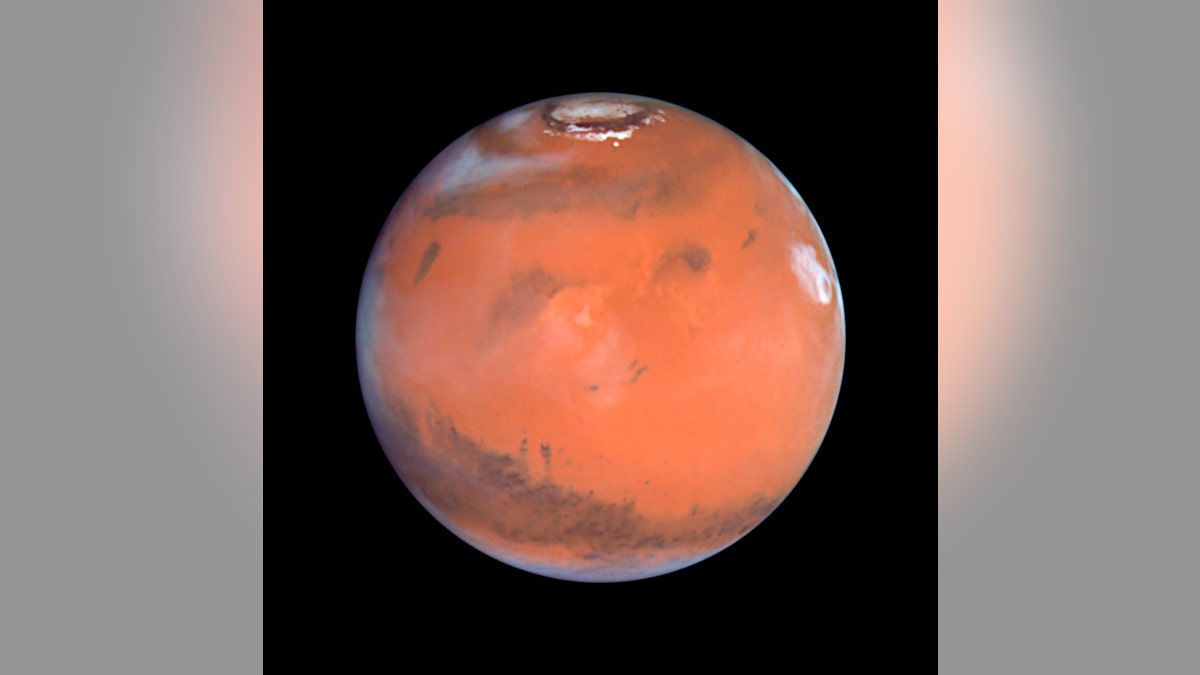
This 1999 Hubble telescope image shows Mars when Mars was 54 million miles from Earth. (REUTERS/NASA/Handout)
Visitors to NASA's Kennedy Space Center in Florida will soon be able to experience what it's like to walk on Mars, thanks to a new partnership with Microsoft. Using Microsoft's HoloLens headsets, the public will be able to take tours of parts of the Red Planet this summer, guided by astronaut great Buzz Aldrin.
HoloLens is Microsoft's augmented reality device, which is now shipping to developers, the company announced at its Build Developers Conference today. It's not quite the immersive virtual reality experience that true VR headsets like the Oculus Rift offer, but it's still capable of stitching together real imagery from NASA's Curiosity Mars Rover, which has been exploring the planet since August 2012.
When the exhibit goes live this summer, visitors who don the HoloLens will be greeted by Apollo 11 astronaut Aldrin, who serves as a holographic tour guide. He'll be joined by a Mars Rover driver, who will explain scientific discoveries and Mars facts while visitors are free to make their own way through the rocky terrain.
"This experience lets the public explore Mars in an entirely new way. To walk through the exact landscape that Curiosity is roving across puts its achievements and discoveries into beautiful context," Doug Ellison, a visualization producer at NASA's Jet Propulsion Laboratory, said in a statement.
The upcoming exhibit grew out of a larger partnership between Microsoft and NASA, which developed the data analytics technology to help engineers and scientists direct the Mars Rover. Called OnSight, it has been used to make recommendations about where the rover should drive and which features to study in more detail.
Microsoft's partnership with NASA is an important step as it ventures into the world of VR, which is already crowded with revolutionary devices like the PlayStation VR and Oculus Rift. During the Build keynote today, HoloLens co-creator Kudo Tsunoda said he hopes partnerships like the ones with NASA will help the general public gain experiences that were previously only available to scientists.
But Microsoft also has big plans for more industry-specific applications. It has lined up organizations as diverse as Japan Airlines and Case Western Reserve University's medical school, which plan to use HoloLens unique "mixed reality" capabilities to instruct pilots and train future doctors.
This article originally appeared on PCMag.com.




















